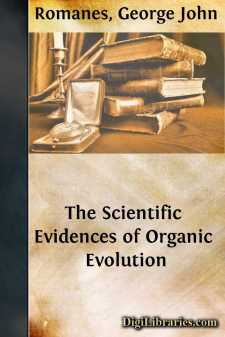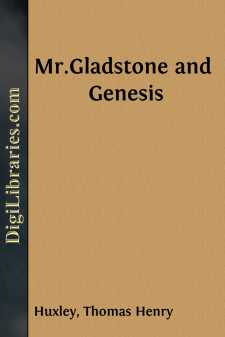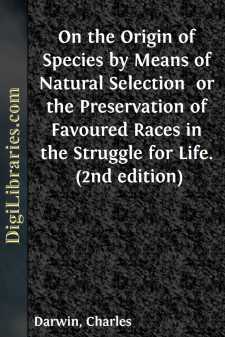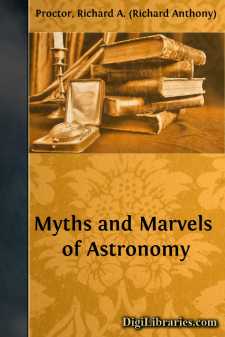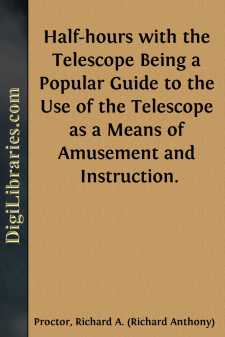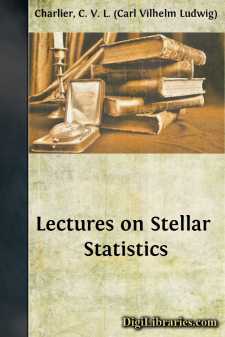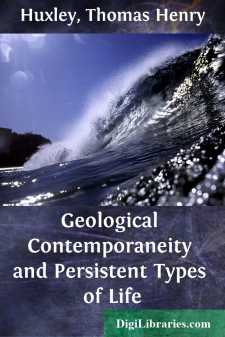Science
- Astronomy 18
- Biology 40
- Chemistry 13
- Electricity 1
- General 38
- History 6
- Light 1
- Paleontology 2
- Philosophy & Social Aspects 1
- Physics 3
- Relativity 2
- Study & Teaching 1
- Waves & Wave Mechanics 1
Science Books
Sort by:
ON THE ADVISABLENESS OF IMPROVING NATURAL KNOWLEDGE. This time two hundred years ago—in the beginning of January, 1666—those of our forefathers who inhabited this great and ancient city, took breath between the shocks of two fearful calamities, one not quite past, although its fury had abated; the other to come. Within a few yards of the very spot on which we are assembled, so the tradition runs,...
more...
THE SCIENTIFIC EVIDENCES OF ORGANIC EVOLUTION. Although it is generally recognised that the Origin of Species has produced an effect both on the science and the philosophy of our age which is without a parallel in the history of thought, admirers of Mr. Darwin's genius are frequently surprised at the ignorance of his work which is displayed by many persons who can scarcely be said to belong to the...
more...
In controversy, as in courtship, the good old rule to be off with the old before one is on with the new, greatly commends itself to my sense of expediency. And, therefore, it appears to me desirable that I should preface such observations as I may have to offer upon the cloud of arguments (the relevancy of which to the issue which I had ventured to raise is not always obvious) put forth by Mr....
more...
by:
Charles Darwin
INTRODUCTION. When on board H.M.S. 'Beagle,' as naturalist, I was much struck with certain facts in the distribution of the inhabitants of South America, and in the geological relations of the present to the past inhabitants of that continent. These facts seemed to me to throw some light on the origin of species—that mystery of mysteries, as it has been called by one of our greatest...
more...
ASTROLOGY. Signs and planets, in aspects sextile, quartile, trine, conjoined, or opposite; houses of heaven, with their cusps, hours, and minutes; Almuten, Almochoden, Anahibazon, Catahibazon; a thousand terms of equal sound and significance.—Guy Mannering. ... Come and see! trust thine own eyes.A fearful sign stands in the house of life,An enemy: a fiend lurks close behindThe radiance of thy...
more...
CHAPTER I ON RAYS PROPAGATED IN STRAIGHT LINES s happens in all the sciences in which Geometry is applied to matter, the demonstrations concerning Optics are founded on truths drawn from experience. Such are that the rays of light are propagated in straight lines; that the angles of reflexion and of incidence are equal; and that in refraction the ray is bent according to the law of sines, now so well...
more...
CHAPTER I. A HALF-HOUR ON THE STRUCTURE OF THE TELESCOPE. There are few instruments which yield more pleasure and instruction than the Telescope. Even a small telescope—only an inch and a half or two inches, perhaps, in aperture—will serve to supply profitable amusement to those who know how to apply its powers. I have often seen with pleasure the surprise with which the performance even of an...
more...
INTRODUCTORY. The problem of the genesis of species stated.—Nature of its probable solution.—Importance of the question.—Position here defended.—Statement of the Darwinian Theory.—Its applicability to details of geographical distribution; to rudimentary structures; to homology; to mimicry, &c.—Consequent utility of the theory.—Its wide acceptance.—Reasons for this, other than, and...
more...
CHAPTER I. APPARENT ATTRIBUTES OF THE STARS. 1. Our knowledge of the stars is based on their apparent attributes, obtained from the astronomical observations. The object of astronomy is to deduce herefrom the real or absolute attributes of the stars, which are their position in space, their movement, and their physical nature. The apparent attributes of the stars are studied by the aid of their...
more...
MERCHANTS occasionally go through a wholesome, though troublesome and not always satisfactory, process which they term "taking stock." After all the excitement of speculation, the pleasure of gain, and the pain of loss, the trader makes up his mind to face facts and to learn the exact quantity and quality of his solid and reliable possessions. The man of science does well sometimes to imitate...
more...



